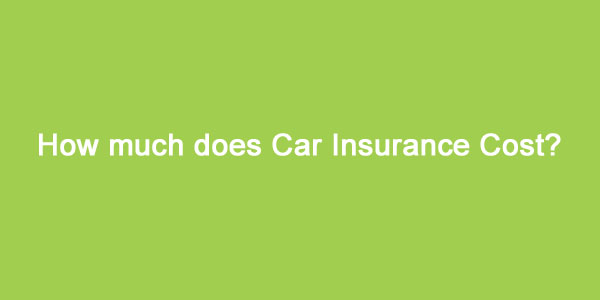When you’re ready to get car insurance and you start shopping around you should take a moment to think about everything that affects the price you’re going to pay.
There are six different characteristics that are going to play a part in how much money you’re going to pay.
Some of them you’re able to make changes to for yourself, but others you aren’t going to be so lucky. The key is knowing what those factors are so you’re prepared.
Personal Demographics effect Insurance Cost
Your personal demographics, like age, sex and marital status are going to affect your cost.
The younger you are the more expensive your car insurance is going to be because those car insurance companies think you’re going to be a worse driver if you’re younger (and a better one when you’re older).
Your sex can actually play a role, too, though it’s going to be less of a factor than other things like your marital status, which also is expected to reduce the chances that you’re going to file a claim and get into an accident.
Location
Where you live is also going to play a big role in your costs. Higher accident prone areas are going to cost more money.
Certain areas may have a higher history of car thefts and incur higher premiums to those that live in a low theft area, which is also going to affect the cost.
If you live in an area where costs are higher then you’re going to pay more at the same time.
You want to make sure you understand your region and the type of costs in that region. Something that’s reasonable for your friend in a smaller city may not be reasonable in your area, keep that in mind.
Type of Car
What type of car you drive has a big impact. If you drive a racy or sporty car you’re going to pay a whole lot more for your insurance than someone who drives a mini-van.
Why? Because if you drive a sporty little car chances are you’re a little more dangerous driver.
Someone with a mini-van is probably a family person and that makes them drive a whole lot more cautiously.
They’re going to be more watchful of the people around them and that’s going to give them a bit of an edge.
Driving Record
Your driving record & habits that you’ve already established are really going to play a part because this shows what you’ve already done in the past.
If you’ve been in several accidents then chances are you’re a reckless driver. If you get pulled over for speeding frequently there’s a pretty good chance you’re going to speed again.
If you’re doing any of these things it can impact the cost you pay because your insurance company will know that each of these factors makes you more dangerous on the road and much more likely to file a claim than someone who has never been pulled over or in an accident.
Personal Finance History
Your credit history can play a part and you may not even have realized that but your credit history establishes how reliable you are.
Reliable people are less likely to get into accidents.
They’re also more likely to pay their premiums on time and take care of any problems that arise. Just like any other company, your car insurance company likes those traits.
They like having people on their list who are going to make the payments and not cause them trouble.
People with higher credit scores are likely to fit that bill because they don’t want to screw up that great credit.
How Much Coverage Needed
Finally how much coverage you want is going to be extremely important.
If you want the lowest level of coverage available for your area you’re probably going to pay a low premium.
If you want full-coverage for absolutely anything that could happen to your car however, you’re going to pay a lot more.
So make sure you’re considering the coverage you have or want against how much money you’re actually willing to pay for it.
By considering each of these options you’ll be able to get an idea of how your rate is going to be figured.
You’ll also be able to figure out which of your habits or factors you can and should change, and which are going to reduce your cost in the long run
